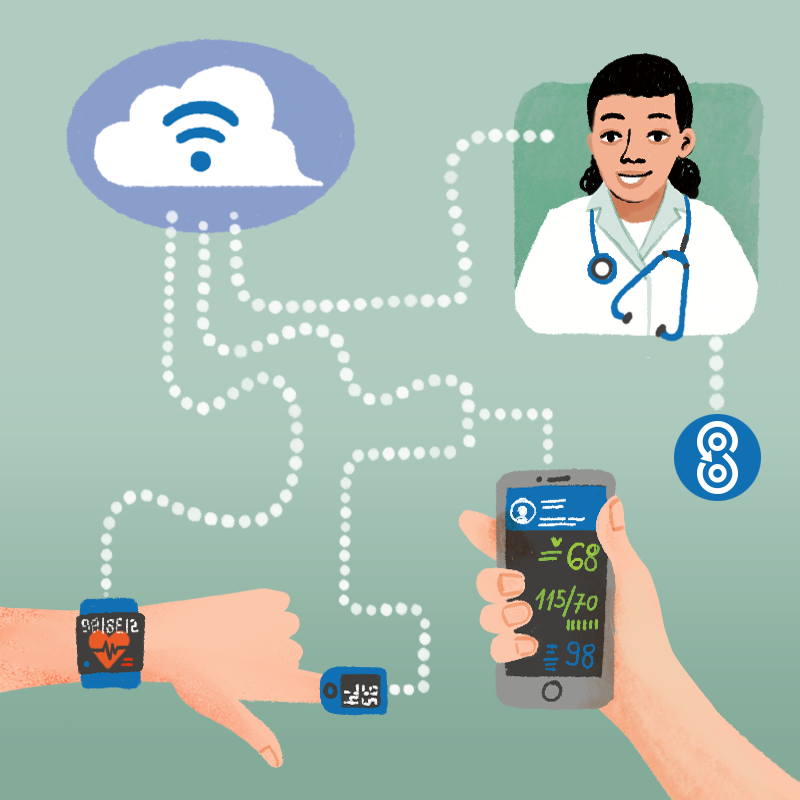The Future of Healthcare: Why Mentoring Matters in Medicine

Healthcare is a fundamental part of our society and as such the future of medicine matters to all of us. For those looking to start their nursing careers, it’s important that they have a clear path to progression and success so that they can develop and continue to provide the first-rate healthcare that keeps hospitals running.
In today’s article, we’ll be discussing how people find their first nursing jobs, how they progress to executive mentoring roles, and why mentoring is so important in medicine.
Planning a Nursing Career

As with any job, those starting out should always be planning their career. In the case of nursing this means knowing about the different areas of learning as well as the potential for career advancement. It also means knowing which qualifications they’ll need both to get into nursing and to develop further along the line.
This is one place where mentoring can play a major role. In nursing, it’s so important that people can bring their passion to the job because, without it, the work can feel both difficult and unrewarding. With mentoring, up and coming nurses can talk directly with people who’ve worked in those roles, getting a first hand sense of what the job is like day in and day out.
Emotional Support
One area that simply doesn’t get enough discussion when it comes to any form of medical training is the need for good emotional support. Nursing can be both stressful and, at times, upsetting. Nurses have to work with people under all kinds of circumstances and it’s important that they have the chance to discuss and recover from their experiences where necessary.
While a mentor’s role isn’t to provide that emotional support directly, they can help a lot by talking about where that support may be needed and what to do when things get tough. This is one of those areas where personal experience is tremendously valuable, helping to give people the resources they need up front and avoid having great nurses burn out of the industry for good.
More Than Just Knowledge
When junior nurses get to work with people in executive nursing roles, they gain more than just the basic day-to-day knowledge of how to do the job. There are many small but practical bits of advice and understanding that only really comes with experience. Furthermore, someone who’s been through that experience will have better ways to explain it.
In many ways, nursing is one of those roles that develops a shared sense of camaraderie. The experiences of nurses are unlike those of many other job roles and, as such, the value of mentoring has the potential to be even greater.
The problem is that while nursing jobs are vital, the infrastructure often just isn’t there to support people in their nursing careers. Medical budgets are often stretched to the breaking point meaning that even where there are executive nursing roles available, it can be difficult to provide the training and support required to help get people to those positions.
Furthermore, every year people are retiring out of the field meaning that the pool of experienced workers is going down and down. If nurses retire without getting the chance to pass along their skills then a great deal of good practice, developed over the course of long careers, leaves the industry for good.
But it doesn’t have to be this way.
Online Mentoring For Nurses
In 2023, the Royal College of Nursing published a report revealing that, between 2018 and 2022, almost 43,000 nursing staff and midwives had left the industry before reaching retirement age. While the reasons for this are varied, the reality is clear – there is a trend towards people leaving nursing at an earlier age leading to less and less mentoring within the industry.
As mentioned earlier, nursing is a difficult and often stressful job and while it is very rewarding, that stress can nonetheless push people out over time. Not only is this a problem for the industry but it’s a problem for nurses as well. After years of training and development, many nurses over the age of forty are effectively being forced to start new careers.
With online mentoring, all of this changes. Experienced nurses can now transition into becoming mentors, allowing them to continue using their knowledge without having to deal with the pressures of working as a nurse. Younger nurses can get the training and advice they need directly, while also seeking out information on how to advance their careers.
If you’re an experienced nurse who’s looking to retire, or you’re starting out on your career and looking for some advice, then join Career Navig8r today!


